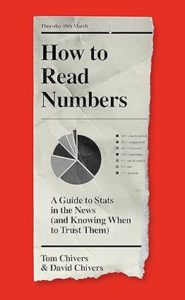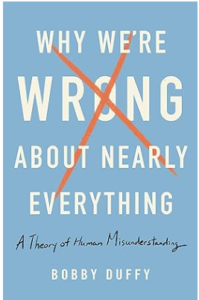Нерозуміння Вебера та інших трагедій (Ukrainian) – Misunderstanding Weber and other tragedies
Нерозуміння Вебера та інших трагедій (Ukrainian) – Misunderstanding Weber and other tragedies
Part 1: Weber, Capitalism, and me. (Background)
Part 2: MIS – Understanding Weber.
Part 3: The Clarity of Clark…Looking at Ukraine
Slovakia (1995).
Once upon a time, a Canadian Navigator, surprised me when she said that I operated from a position of “power.” I was caught off guard. The tone was not of admiration but accusation. At the time, we were expanding the sports ministry work in Bratislava and Devinska Nova Ves. Apparently, she resented the “resources/money” that I was bringing to the expansion. Once again, the “Americans” were pushing their way through armed with men, money and material. I thought at first, she resented the U.S. Military assets that I brought to the summer camps we did for latch key kids. Perhaps, instead, she was warning me that I lacked faith in God to provide – bringing MY plan to supplant HIS plan.
I let the comment slide.
After all these years Bebbington, Max Weber and Jason Clark have caused me to revisit this statement as GoodSports International (www.goodsportsinternational.org) is being launched by God into Ukraine. It has forced me to evaluate our methodology as we seek what God is already doing there. Henry Blackaby in his book Experiencing God warns, “We don’t choose what we will do for God; He invites us to join Him where He wants to involve us.” [1] God doesn’t need us but invites us to do the good work His servants are already doing.
My line of thinking began with Bebbington’s quadrilateral, specifically Activism/Evangelism. How did this aspect of his quad connect with capitalism?
What is God inviting us to do in Ukraine? Who was already working there? And how were we to support them?
The issue at hand is money (capitalism?). Is capitalism good or bad? 1 Timothy 6:10 – For the love of money is a root of all kinds of evil: which some reaching after have been led astray from the faith, and have pierced themselves through with many sorrows. Perhaps not my love of money but using it a first step to interact with Ukrainian ministry programs to take me seriously.
In short, Ukrainian ministries need funds to do what God has called them to do. I appeal to their need (greed?) and they engage in dialogue with a total stranger. This upsets my wife (rightly so). She argues, rather than leading with the “bait” I should reshape my approach to coming along side/partnering rather than outright the offer of financing. (Sigh -she’s right of course).
For some reason I am remembering “rice bowl Christians – noun,: a convert to Christianity who accepts baptism not on the basis of personal conviction but out of a desire for food, medical services, or other benefit[2] (See William Damper [3]). There is not a direct correlation here, but I see it as a border I do not want to cross.
Not to minimize the work being done by Christians in Ukraine, my wife argues that the offer of funding burdens ministries causing to behave differently. Interacting with me, they are on their best behavior, and we may have created a layer of relational artificiality. Capitalism (Money) + evangelism =bad?
Part 2. Misunderstanding Weber.
In short, I misunderstood Weber.
In The Protestant Ethic and the Spirit of Capitalism.[4] He writes, “There arises thus the historical question: why were the districts of highest economic development at the same time particularly favourable to a revolution in the Church?” (p.4). As I read further in his section Religious Affiliation and Social Stratification, I begin to see his comparison between Catholics (less successful) versus Protestants (more successful). He writes…”the fact that business leaders and owners of capital, as well as the higher grades of skilled labour, and even more the higher technically and commercially trained personnel of modern enterprises, are overwhelmingly Protestant (p.3).
I am derailed here. Perhaps Weber does not speak to my dilemma. Money = Bad, Capitalism the “force” behind evangelism = also bad. I had to regroup.
Max Weber is hard to read, so clicked on YouTube for the audio-visual version. Lon Schiffbauer, on the Nutshell Brainery Chanel provided a quick synopsis. https://www.youtube.com/watch?v=VpipJPba2Zo , Protestant Work Ethic as Told by Max Weber.
version. Lon Schiffbauer, on the Nutshell Brainery Chanel provided a quick synopsis. https://www.youtube.com/watch?v=VpipJPba2Zo , Protestant Work Ethic as Told by Max Weber.
Once I had the key points, I went back to Weber to see what he actually said.
To summarize
1) At minute – (2:33) Life is short, use every moment. “Waste of time is thus the first and in principle the deadliest of sins. The span of human life is infinitely short and precious to make sure of one’s own election. Laziness and Sloth were considered the worst of sins.
[Weber, Page 136], note: 26 Hence (op. cit., I, p. 380) its symptoms are carefully analysed. Sloth and idleness are such deadly sins because they have a cumulative character. They are even regarded by Baxter as “destroyers of grace” (op. cit., I, pp. 279–80). That is, they are the antitheses of the methodical life]
Coming from a background in Hawaii, we can see the products of those immigrating ethnic groups that have a slower/relaxed approach to work versus those who are in short workaholics. Additionally, because of the great weather, people flock from all over to live in tents on the streets. Laziness and Sloth.
2) At minute – (2:43) A person’s job is more…it is a holy calling. “For everyone without exception God’s Providence has prepared a calling, which he should profess in which he should labor…”[It is] a direct consequence of the divine scheme of things.”
[Weber, p. 106] For everyone without exception God’s Providence has prepared a calling, which he should profess and in which
he should labour. And this calling is not, as it was for the Lutheran,30 a fate to which he must submit and which he must make the best of, but God’s commandment to the individual to work for the divine glory.
I am drawn back to Rick Warren’s Purpose Driven Life.
- The Question of Existence: Why am I alive?
- The Question of Significance: Does my life matter?
- The Question of Purpose: What on earth am I here for?
Warren, Rick. Purpose Driven Life: Selected Thoughts and Scriptures for the Graduate. Updated edition. Grand Rapids, MI: Zondervan, 2013.
As I ramble about in retirement I truly find that without purpose, my life tetters upon disaster. I look forward to Esther Edwards “Transitions NPO.”
3) At minute – (3:11) God doesn’t care for those living a luxurious lifestyle. Living ascetically showed humility. “this worldly Protestant asceticism…acted powerfully against the spontaneous enjoyment of possessions; it restricted consumption, especially of luxuries. (3:23). Not against earning but spending. “The campaign against the temptations of the flesh, and the dependence on external things, was…not a struggle against the rational acquisition, but against the irrational use of wealth.” (3:43)
[Weber, Page 115] The campaign against the temptations of the flesh, and the dependence on external things, was, as besides the Puritans the great Quaker apologist Barclay expressly says, not a struggle
against the rational acquisition, but against the irrational use of wealth. …On the other hand, they approved the rational and utilitarian uses of wealth which were willed by God for the needs of the individual and the community.
I am appalled by the consumerism in the U.S.A. it is the dark side of Capitalism. Average credit card balance in the United States in 2023, by age
4) At minute (4:01) Investing is the name of the game. Not allowed to spend…so you invest it. Talents’ new testament. “When the limitation of consumption (in other words, don’t spend it) is combined with this release of acquisitive activity (which is to say, work your ass off), the inevitable practical result is obvious: accumulation of capital through ascetic compulsion to save…) (4:38) “the restraints which were imposed upon the consumption of wealth naturally served to increase it by making possible the productive investment of capital (or as we might say, don’t spend it: invest it).” (4:55)
[Weber, Page 116] When the limitation of consumption is combined with this release of acquisitive activity, the inevitable practical result is obvious: accumulation of capital through ascetic compulsion to save.85 The restraints which were imposed upon the consumption of wealth naturally served to increase it by making possible the productive investment of capital.
Choose wisely when you invest, stocks, real estate, bit coin….they can make or break you.
Part 3 – The Clarity of Clark….Ukraine.
In Dr. Jason Clark’s Evangelicalism and Capitalism: A Reparative Account and Diagnosis of Pathogees in the Relationship. London School of Theology, 2018, the clarity of the relationship between Evangelism and Capitalism begins to emerge.
Clark writes, “My research therefore is initiated from an observed pathogenesis between Evangelicalism in its relationship to capitalism” (p.9). He goes on to say, “Milbank admits there is value to associations around shared interests, but he does assert most forcefully that the “state of affairs” of Evangelicalism in concert with capitalist practices is “manifestly evil” and is a substitute for real embodied church and mission” (p.14).
This statement brings me back to my original thoughts about my concerns for work in Ukraine. Clark, however, clarifies.
“An Evangelical ethos developed through its resonance with capitalism, that was then unable to resist the pathologies it had created in its relationship with capitalism” (p.18).
The Hawaiian visual I get from Clark is that the message of God is like a surfboard riding on the wave of capitalism. Christianity/Evangelism is being propelled by the energy of the wave. IF the energy of the wave pulls too hard, the board will crash into its depths (its message drowned). The surfboard (Evangelism) must balance itself without being overcome.
a surfboard riding on the wave of capitalism. Christianity/Evangelism is being propelled by the energy of the wave. IF the energy of the wave pulls too hard, the board will crash into its depths (its message drowned). The surfboard (Evangelism) must balance itself without being overcome.
Clark, however, reformats the power of the wave (Capitalism) he writes, “Indeed O’Donovan reminds us that the Spirit authorises and empowers the church. It is through the Spirit that the church recapitulates the Christ-event” (p. 239). He adds, “What is still needed, and my thesis points to, is a robust theology of the Holy Spirit that engages with the formative practices of capitalism” (p.240).
Enter the Holy Spirit as the engine/force/wave upon which our faith rides! I feel redeemed!
Towards his conclusion, Clark quotes Tim Marshall, “Vladimir Putin cannot make mountains appear in the Ukraine to protect the flatland territories of Russia” (p.244).[5]
 Ahh Ukraine. I have Ukraine on the brain.
Ahh Ukraine. I have Ukraine on the brain. This morning, I spoke with Pastor Valeryi of the Redemption Church in Kharkiv. We discussed his mission, his budget and how we would help him fashion a balance of story and statistics that would draw donors to his church’s mission. For the fundraising campaign I am drawing upon the lessons Chivers[6] teaches regarding the need for numbers. And then from Duffy, “We remember vivid anecdotes far more readily than boring statistics” (p.90).[7]
This morning, I spoke with Pastor Valeryi of the Redemption Church in Kharkiv. We discussed his mission, his budget and how we would help him fashion a balance of story and statistics that would draw donors to his church’s mission. For the fundraising campaign I am drawing upon the lessons Chivers[6] teaches regarding the need for numbers. And then from Duffy, “We remember vivid anecdotes far more readily than boring statistics” (p.90).[7]
Genesis 5:20 You intended to harm me, but God intended it for good to accomplish what is now being done, the saving of many lives. We frequently use this verse to explain the turnaround of evil circumstances that God takes for the benefit of man.
Capitalism is a tool. It may or may not assist Ukrainians expand the kingdom. Trust in the Holy Spirit to guide us.
God is launching GoodSports toward Ukraine. Where we land, I do not know. But as we connect and develop relationships I am chastened about the distastefulness and vulgarity in using money to enter this space. At the same time I am encouraged that the Holy Spirit is our guide, the wave upon which our evangelism will ride.
Shalom, Shalom (perfect peace).
[1] Blackaby, Henry T., Richard Blackaby, and Claude V. King. Experiencing God: Knowing and Doing the Will of God. 15th anniversary ed. Nashville, Tenn: Broadman & Holman Publishers, 2004.
[2] “Definition of RICE CHRISTIAN.” Accessed October 19, 2023. https://www.merriam-webster.com/dictionary/rice+Christian.
[3] South China Morning Post. “Opinion: Hong Kong’s ‘Rice Christians’ Are Devoted to Material Gain,” April 25, 2019. https://www.scmp.com/magazines/post-magazine/short-reads/article/3007639/rice-christians-converts-who-are-devoted.
[4] Weber, Max. The Protestant Ethic and the Spirit of Capitalism. Routledge Classics. London ; New York: Routledge, 2001.
[5] Tim Marshall, Prisoners of Geography: Ten Maps That Tell You Everything You Need to Know
About Global Politics (London: Elliott & Thompson, 2016).
[6] Tom Chivers and David Chivers, How to Read Numbers: A Guide to Statistics in the News (and Knowing When to Trust Them) (London: Weidenfeld & Nicolson, 2021).
[7] Bobby Duffy, Why We’re Wrong about Nearly Everything: A Theory of Human Misunderstanding, First US edition (New York: Basic Books, 2019).
2 responses to “Нерозуміння Вебера та інших трагедій (Ukrainian) – Misunderstanding Weber and other tragedies”
Leave a Reply
You must be logged in to post a comment.
Russell,
Thank you for pointing the following quotes out. “Indeed O’Donovan reminds us that the Spirit authorises and empowers the church. It is through the Spirit that the church recapitulates the Christ-event” (p. 239). He adds, “What is still needed, and my thesis points to, is a robust theology of the Holy Spirit that engages with the formative practices of capitalism” (p.240).
We do need to know how to move forward as leaders in ministry in a consumeristic society. Money is not evil, just our love for it. (I Timothy 6:10). I feel there is more to unpack regarding capitalism as well. It has definitely created a consumer mindset even in our churches, yet I wouldn’t want a socialist society either. This is all beyond my scope of understanding, but am interested to learn more.
HI Esther,
Thanks for responding. Once again I forgot to click the DLGP02 button and my post never got put up.
Anyway, remembering the past, so that we are not doomed to repeat it.
It is nice to visit Weber’s protestant work ethic, but from a non Anglo perspective I wondered about the work ethic my immigrant grandparents (China and Philippines) exhibited when they came to Hawaii. They were not influenced by Weber, the catholic church or the protestant church.
They worked hard, reinvested in their various small businesses (one does get tired of pineapples and sugar can fields), emphasized education as a way towards success in America, abandoned their native languages, and encouraged martial arts.
They sought a better way of life.
Senator Hiram Fong, called my generation “bananas” yellow on the outside and white on the inside. I have always thought that he was funny, also very right.
But then we come back to Evangelism. Almost ALL of my high school friends, from various backgrounds and religions have come to accept Jesus as their savior. We even did it unbeknownst to each other over decades. Why because, the message of the gospel pierced through all the cross cultural stuff with the truth.
Yes, I see the interactions of capitalism and Christianity – however, like yourself I don’t believe the Holy Spirit is limited by either.
Shalom…